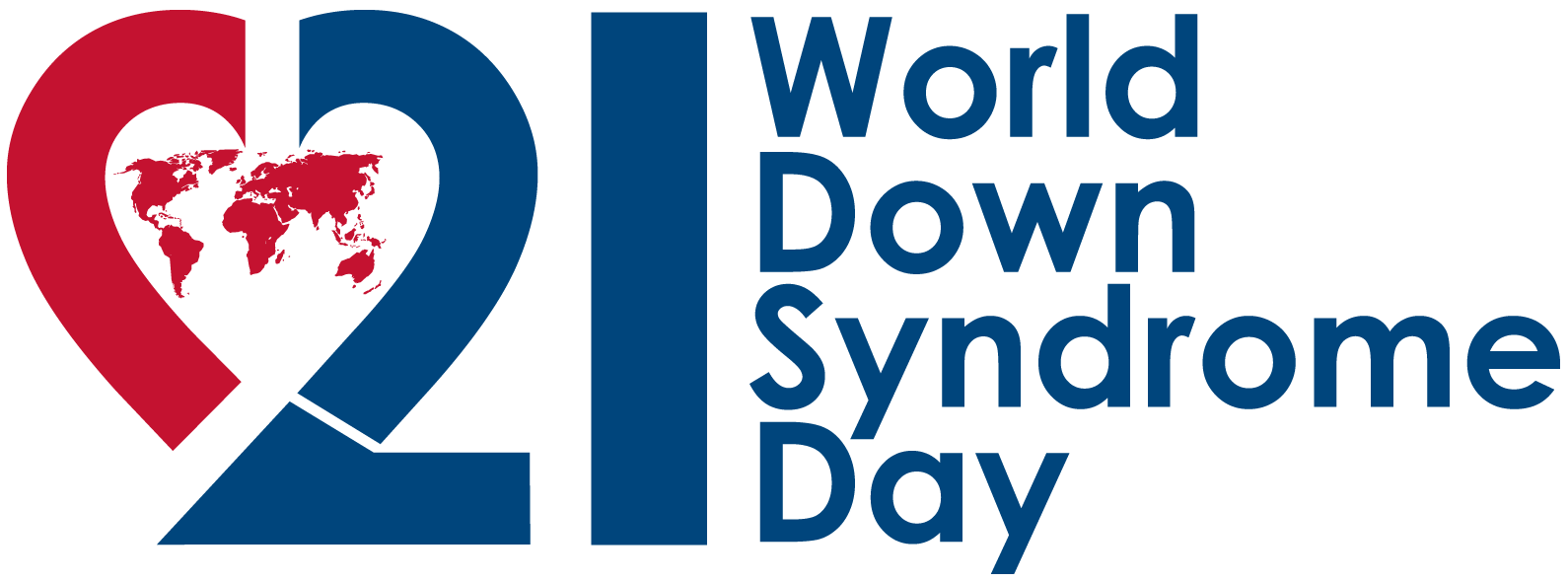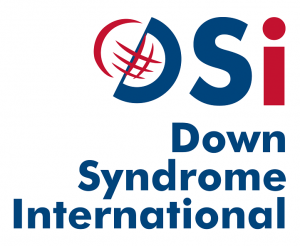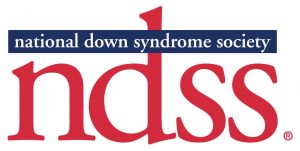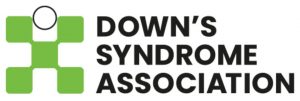The Brynard family from South Africa
My name is Sheri Brynard and I am 39 years old. I live in South Africa and my home language is Afrikaans. When Afrikaans people celebrate something, we usually enjoy a barbeque outside.
When we were little, my father Jerry played golf and watched rugby on Saturdays, while my mother took us on outings. She used to work full time, but not on Saturdays and Sundays. That was our day together.
I am the eldest of three daughters. When my sister Marisa was born, I was so happy I started to walk. In those days, 39 years ago, my mother did not get much support from therapists because there were not many support people in our town. People like me were often put in institutions. One paediatrician told my mother he would not help her to stimulate me because people with Down syndrome only eat too much and die early. There were people who said that my mother had to confess her sins and then I would become like other children. My mother was never aggressive towards unsensitive people. She taught us to forgive the people whose eyes were still closed about all people being different.
Our real friends and family were wonderful after my birth. They all accepted me as I am. They reached out to us and most of them are still our friends. We were a happy family because my parents did not feel sorry for me or for themselves. They loved their three daughters equally and still do.
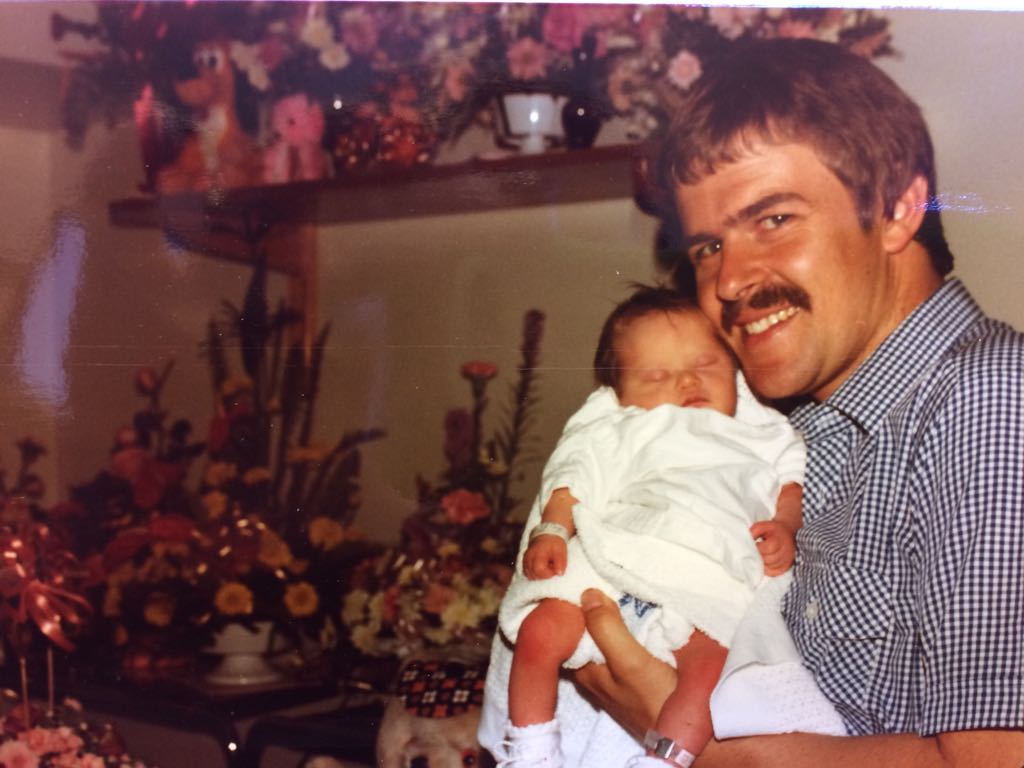
Sheri with her father
After I was born, my mother tried to meet with other parents, but she could only find three other families with a child with Down syndrome in Bloemfontein. Most other persons with Down syndrome were put in institutions. My mother then went to the clinics and paediatricians and gave her name to contact, when a baby with Down syndrome was born. She and my father then visited the new parents to tell them about the wonderful journey that waited for them.
The birth of my two sisters were both highlights in my life. They taught me more than any other person, because I copied them. My eldest sister is 21 months younger than me and her name is Marisa. We were like twins, although she soon passed me physically and intellectually. We were and still are very close. She was my mini-mother and she will still do anything to assist me. Her daughter is named after my late father and me. Mia Sheri. Somehow my name will not die with me, one day. That means a lot to me. I remember that we were always dressed the same, from head to toe. We had pigtails that made our eyes look like slits. My mother used to teach us after work and during weekends. When we went for a walk, we would sing and when we played in the sand we would say or sing the a-b-c or numbers. Learning was always fun and we laughed a lot. My baby sister is 31 now and has her own little baby girl. She brought balance into our home. She teased me and handled me the same as all other people. She feels sorry for other people with a disability, but not for me. She saw me as “normal” because that was the way I was handled in our house. Today she is still strict with me although I know she will do anything for me.
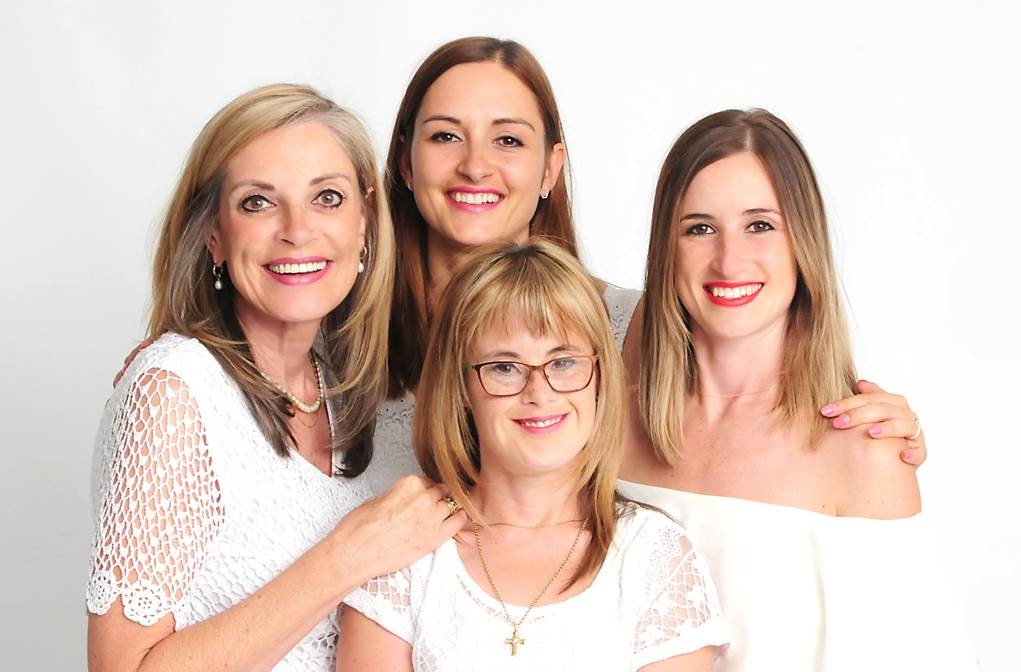
Sheri with her mother and sisters
My father was the best father the Lord could give me. He loved me, played with me, joked and laughed with me and showed me to anyone who was willing to look. He was the only one who could get me to go to sleep when I was little. He was also strict and he did teach his three daughters the boundaries of good manners and socially acceptable behaviour. My father fell off a waterfall nearly 20 years ago and that was the hardest thing that ever happened to me. They found his body about a month later and that meant I could not say goodbye to him. My mother told us we must focus on the four of us that were still alive and try to be happy again, although I could see how she missed him.
My mother was the one who tried to stimulate us. Because she had no one with knowledge to assist her when I was little, she ordered books about Down syndrome from America. At that time there were no google or therapists who could assist her. She played with me and later with me and my sister, Marisa, teaching us. When I was a little older, a kind Occupational Therapist did help my mother to work out ways she could play with me, while stimulating me. We used to sing, walk and talk a lot. My mother tried to teach me to talk from a very early age. She would put her lips on my lips to show me how words are formed and she also taught me to make sounds.
My mother means the world to me because she teaches me what is right and wrong, although I always know that she loves me just the way I am. She teaches me to do things for myself because she wants me to be able to look after myself if she is not there to help me. She is strict and makes me aware of the consequences of wrong decisions. My mother embraces the differences in people and cares for people who have less than other people. I also like the fact that she dresses nicely and she expects of me to always look my best. I love travelling with her, especially overseas. We understand each other and respect each other’s needs. My mother is not one who believes in Mother’s Day gifts that costs money. So, for this Mother’s Day I will only give her my love and coffee in bed.
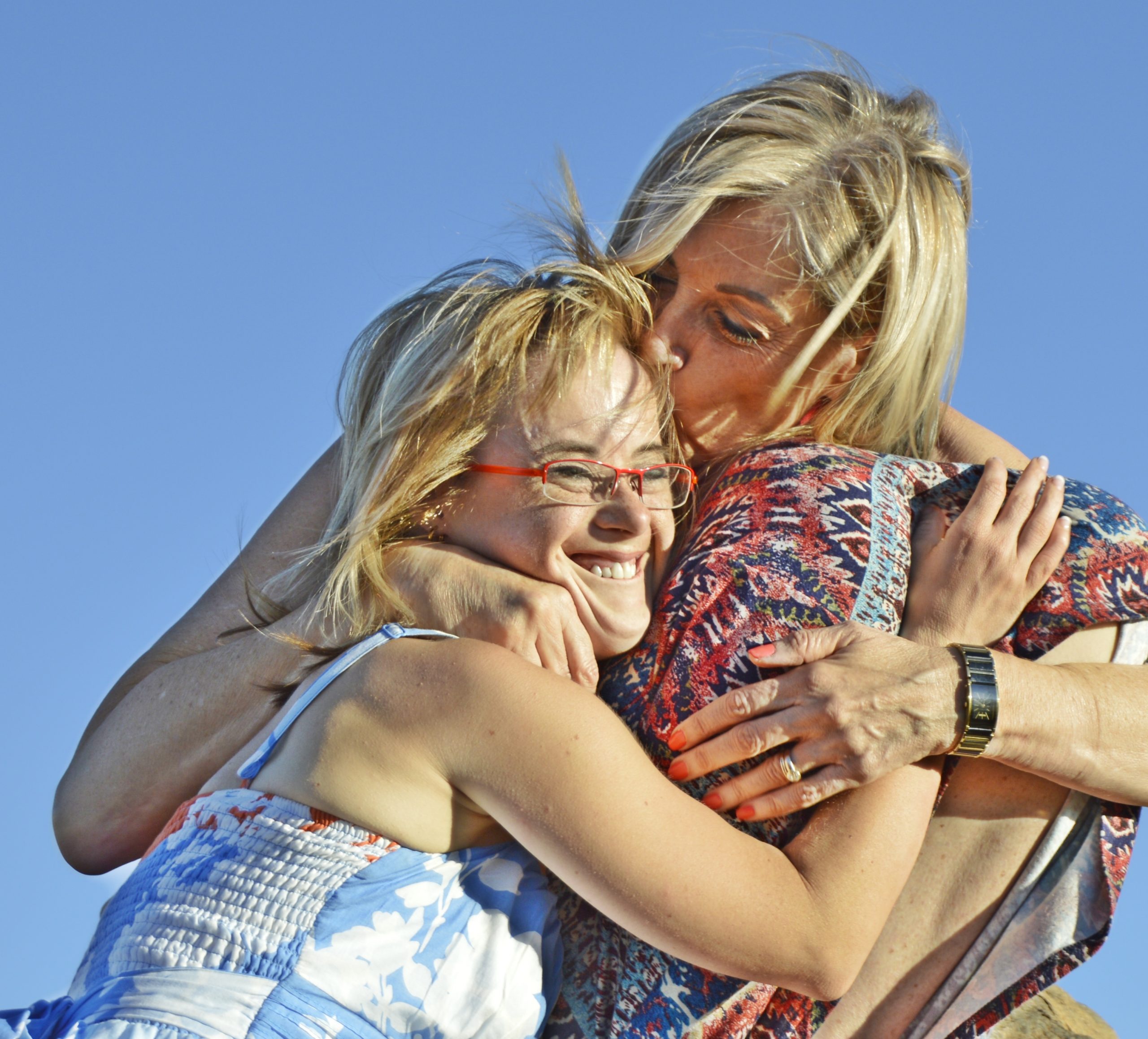
Sheri with her mother

The best way to promote awareness of Down syndrome is for people with Down syndrome to share their own stories in their own words.
If you have a story that you would like to share with the world, please click here: SHARE YOUR STORY
